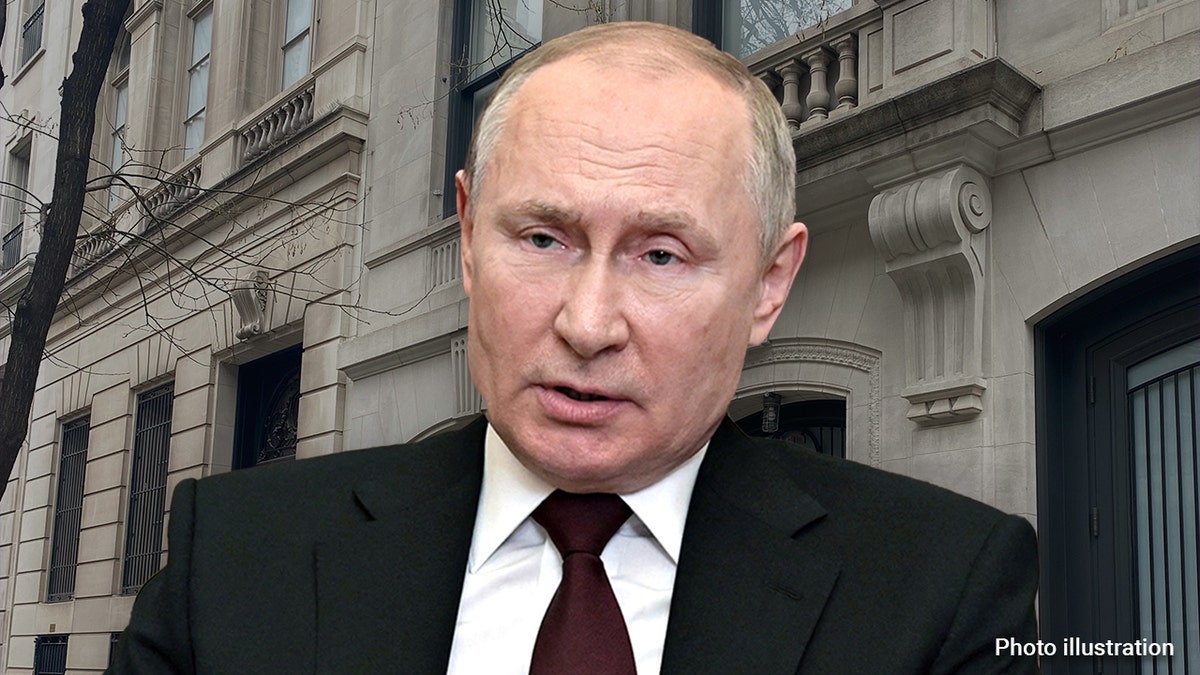Fox News Flash top headlines for April 20
Fox News Flash top headlines are here. Check out what's clicking on Foxnews.com.
The Treasury Department on Wednesday designated a number of entities and individuals involved in attempting to evade sanctions imposed by the United States and international partners on Russia, maintaining that economic costs will be imposed to "degrade the Kremlin’s ability to project power and fund" its invasion of Ukraine.
The Treasury Department’s Office of Foreign Assets Control (OFAC) designated Russian commercial bank Transkapitalbank and a global network of more than 40 individuals and entities led by U.S.-designated Russian oligarch Konstantin Malofeyev, including organizations whose primary mission is to facilitate sanctions evasion for Russian entities.
UNITED STATES, CANADA, EUROPEAN ALLIES MOVE TO BLOCK 'SELECTED' RUSSIAN BANKS FROM SWIFT
OFAC also designated companies operating in Russia’s virtual currency mining industry, reportedly the third largest in the world. The Treasury Department said this is the first time they have designated a virtual currency mining company.
"Treasury can and will target those who evade, attempt to evade, or aid the evasion of U.S. sanctions against Russia, as they are helping support Putin’s brutal war of choice," Brian E. Nelson, undersecretary for terrorism and financial intelligence, said Wednesday. "The United States will work to ensure that the sanctions we have imposed, in close coordination with our international partners, degrade the Kremlin’s ability to project power and fund its invasion."

President Vladimir Putin has shut down independent media inside Russia. (Getty Images)
Transkapitalbank is a privately owned Russian commercial bank that has operated since 1992. Treasury says TKB representatives have offered services to banks in Asia, including within China the Middle East, and "suggested options to evade international sanctions."
The Treasury Department said that, for example, in order to "avoid detection and sanctions-derived restrictions," the bank had offered its clients the ability to conduct transactions through its proprietary internet-based banking system known as TKB Business, which they describe as an alternative communication channel to the Society for Worldwide Interbank Financial Telecommunication (SWIFT) network.
Treasury said the move is for the purpose of "processing U.S. dollar payments for sanctioned clients."
Treasury also noted that TKB is seeking to create a settlement hub in Asia "without involving U.S. or European banks in the clearing process."
On Wednesday, OFAC also targeted a worldwide sanctions evasion and "malign influence network" led by Russian oligarch Konstantin Malofeyev. Malofeyev was first designated in 2015 for being "responsible for or complicit in, or for having engaged in, actions or polices that threaten the peace, security, stability, sovereignty or territorial integrity of Ukraine; and for having materially assisted, sponsored or provided financial, material or technological support for, or goods or services to or in support of, the so-called Donetsk People’s Republic."
Malofeyev has also been sanctioned by Australia, Canada, the European Union (EU), Japan, New Zealand and the United Kingdom (UK).
RUSSIA ANNOUNCES SANCTIONS AGAINST BIDEN AND TOP US OFFICIALS
According to the Treasury Department, at the time of his 2014 designation, Malofeyev "funded separatist activities in Eastern Ukraine and was one of the main sources of financing for Russians promoting separatism in Crimea."
"In recent years, Malofeyev, covertly or through intermediaries, supported pro-Russian activities that undermine democracy, interfere in elections, and degrade security and stability in a host of countries," the Treasury Department said. "Malofeyev served as an intermediary between the Government of the Russian Federation (GoR) and pro-Russia politicians abroad, facilitated funding for or directly financed pro-Russia politicians and opinion makers, and worked to create institutions that could advance Russia’s interests in the European Union from within."
Meanwhile, the sanctions are also coordinated with additional action taken by the State Department.
The State Department is moving to impose visa restrictions on 635 Russian nationals who are "involved in suppressing dissent in Russia and abroad, who have been involved in activities that threaten the territorial integrity of Ukraine, and who have been involved in human rights abuses in prison facilities and places of unofficial detention in Russia-controlled areas of the Donbas region of Ukraine."
The State Department is also imposing visa restrictions on three Russian Federation officials for involvement in "gross violations of human rights, and on 17 individuals responsible for undermining democracy in Belarus."
"As a result of today’s action, all property and interests in property of the persons above that are in the United States or in the possession or control of U.S. persons are blocked and must be reported to OFAC," the Treasury Department said Wednesday. "In addition, any entities that are owned, directly or indirectly, 50% or more by one or more blocked persons are also blocked."
RUSSIA INVADES UKRAINE: LIVE UPDATES
Treasury said "all transactions by U.S. persons or within (or transiting) the United States that involve any property or interests in property of designated or otherwise blocked persons are prohibited unless authorized by a general or specific license issued by OFAC, or exempt."
"These prohibitions include the making of any contribution or provision of funds, goods, or services by, to, or for the benefit of any blocked person and the receipt of any contribution or provision of funds, goods, or services from any such person," Treasury said.
In February, the United States, Canada and other European allies imposed sanctions on Russia, and removed Russian banks from the SWIFT messaging system. The U.S. and allies said the move would "ensure that these banks are disconnected from the international financial system and harm their ability to operate globally."
CLICK HERE TO GET THE FOX NEWS APP
The move came from leaders of the European Commission, France, Germany, Italy, United Kingdom, Canada, and the United States.
SWIFT provides messaging services to banks in over 200 countries, and is controlled by the central banks of the G-10, including Belgium, Canada, France, Germany, Italy, Japan, the Netherlands, the United Kingdom, the United States, Switzerland and Sweden.














































